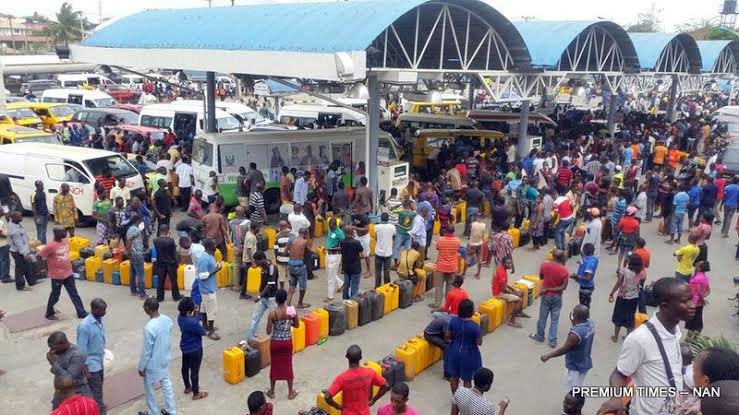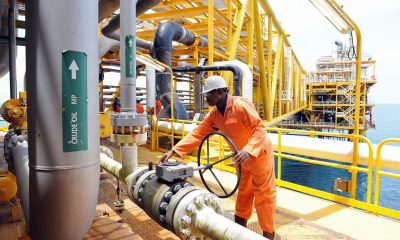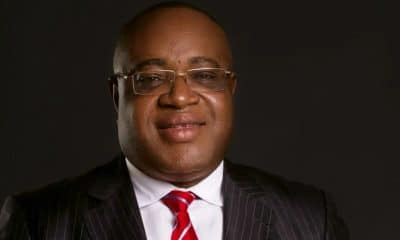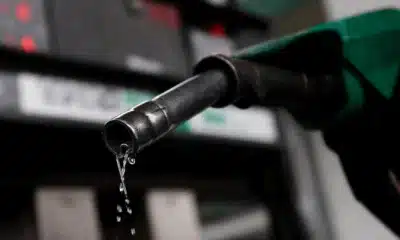Business
Fuel Scarcity: Pump Price Hits N285/Litre In Some Parts Of Abuja

The price of Premium Motor Spirit popularly known as petrol keeps soaring as fuel scarcity seems to have entered its fifth week.
Naija News reports that queues have continued at a few filling stations opened for business, while others have remained closed.
Several fuel stations across the Federal Capital Territory (FCT) were reported to have adjusted pump prices between the range of N180 and N285 per litre.
It was learnt that queues had returned to many filling stations, especially within the central business district of the FCT.
Naija News had reported two days ago that the Group Managing Director of the Nigerian National Petroleum Company Limited (NNPCL), Mele Kyari disclosed to Nigerians that the company can no longer maintain sales of petrol at N170/Litre when the landing cost of the product is thrice what it is sold for in the country.
However, the NNPCL filling station at the outskirts of Karu reportedly sold fuel at an adjusted price of N179 per litre.
Similarly, fuel sold at the same price at the Shema filling station at Kugbo, along the Abuja-Keffi expressway, while the NNPCL filling station at Wuse Zone 6, and NIPCO filling station close to the capital hub sold the product at N180 per litre.
However, Punch said Khalif Civic Oil and Investment Limited, within the Kubwa axis of the FCT, sold fuel at the highest pump price of N285 per litre.
Naija News gathered that in defence of the continuous surge in prices of fuel, a petrol station manager identified as Saleh Alfa told Punch that all fuel stations in the FCT were currently selling at black market prices because there isn’t any fixed price yet for the product at the moment because of its landing cost.
Alfa explained that the situation is inevitable because the NNPCL has admitted that it has no stock, hence independent marketers are getting the fuel from other sources with varying landing prices, so there can’t be a uniform price range in the downstream oil sector.
He said “If other stations are selling at N250, N180, or N285, it implies that all are selling at black market rates if you want to put it that way. Because for now, there is no uniform price in the downstream oil sector. There is no fuel; the NNPCL admitted that there is no fuel, and independent marketers are getting the fuel from other sources. The price at which we get these products is not the government price or the NNPC price; it depends on where you get your products.
“So, that is what is responsible for the variance in prices. That’s why we in the business are asking the government to allow total deregulation. If there is total deregulation, then it will be determined by the market forces, and when there’s competition, the customers will have a choice on where to buy from.”












